Mahanaya, or Great Vehicle, Buddhism arose from the Mahāyāna Sūtras and their emphasis on the bodhisattva path. Gautama Buddha had previously taught the Middle Way of monastic discipline. He built the Middle Way from the Five Precepts as the path to escape samsara. This is accepted as Theravada, or the Way of the Elders. The difficulty with Theravada lies in the fact that normal, sinful people, cannot even keep the Five Precepts faithfully. So how can they follow the more rigorous monastic requirements? Is no help available to people who cannot follow the Theravada path of morality, wisdom and concentration?
The Mahayana Sutras, accessible about 500 years after Gautama Buddha, met this need. These Sutras taught that many Bodhisattvas had generated Bodhicitta, or mind awakening. They did so out of compassion to help other sentient beings in their quest for awakening. Mahayana and Vajrayana (Tibetan) Bodhisattvas use the powers they have developed from their own concentration to assist those who cannot achieve similar perfection. Note some exceptionally noteworthy Bodhisattvas highlighted here.
Bodhisattvas Sent to Help Us
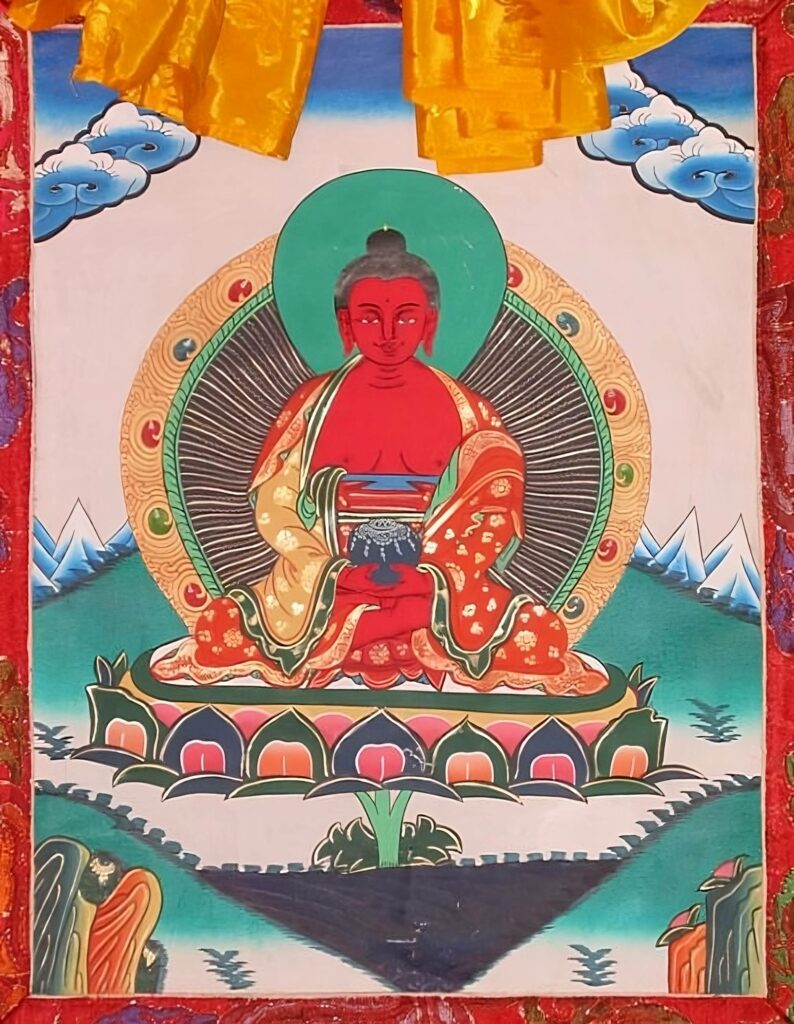
n/a, CC BY-SA 3.0, via Wikimedia Commons
Amitabha (Amitayus)
The primary Bodhisattva of Pure Land Buddhism possesses infinite merit. His merit credit comes from good deeds over countless past lives as a bodhisattva named Dharmākara. Dharmakara was an ancient King in China who renounced his throne to pursue the Bodhisattva path. Thus he can now help others as the Buddha of Infinite Life. He made 48 vows which, if not fulfilled, would bar him from dwelling in the Transcendent realm called ‘Pure Land’. Since the Larger Sutra (Larger Sukhvativati-yvuha Sutra) declared that Dharmakara had indeed achieved enlightenment, then he must have fulfilled these 48 vows. These vows, especially the 18th vow, offers assistance to those who call out for help to Amitabha Buddha.
Avalokiteśvara
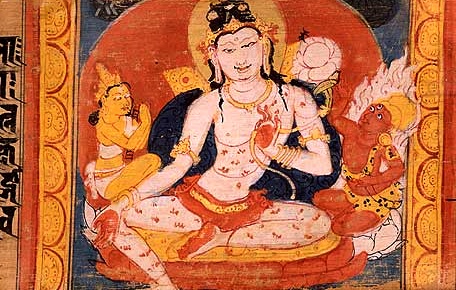
Asia Society, Public domain, via Wikimedia Commons
With 108 avatars, a name that means ‘Lord who looks down’, and considered to be a primary attendant to Amitabha, Avalokitesvara embodies the compassion of all Buddhas. He is ready to help those who call for it. Devotees worship Avalokiteśvara by many names on account of his numerous avatars. They do so through spinning prayer wheels and reciting mantras. Because of his desire to help all who ask, Amitabha Buddha gave 11 heads and 1000 arms to one of Avalokitesvara’s avatars. Thus he can hear all requests for help as well as have the strength to meet all these immense needs.
Guanyin (观音; 觀音)
Guanyin is short for Guanshiyin, a female form of Avalokitesvara. She continually listens to the cries of people in order help them. She is widely venerated as the goddess of mercy and compassion because she is seen as a saviour and source of unconditional love. In her bodhisattva vow, Guanyin promises to answer the cries and pleas of all. She will also liberate them from their karmic woes. Even those who have no chance of achieving enlightenment on their own can reach it with her help. Those deep in negative karma can still find salvation through her compassion.
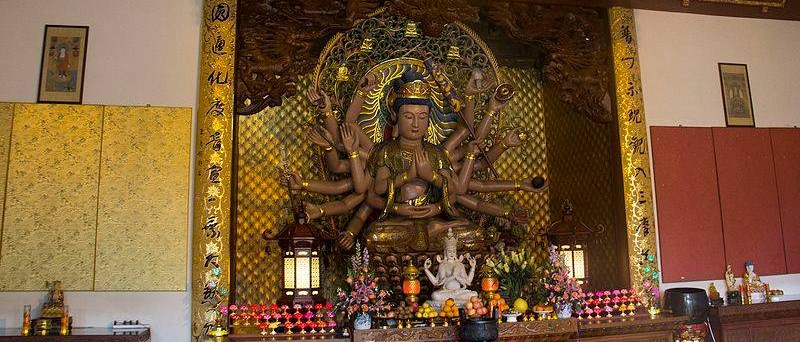
維基小霸王, CC BY-SA 4.0, via Wikimedia Commons
Manjusri
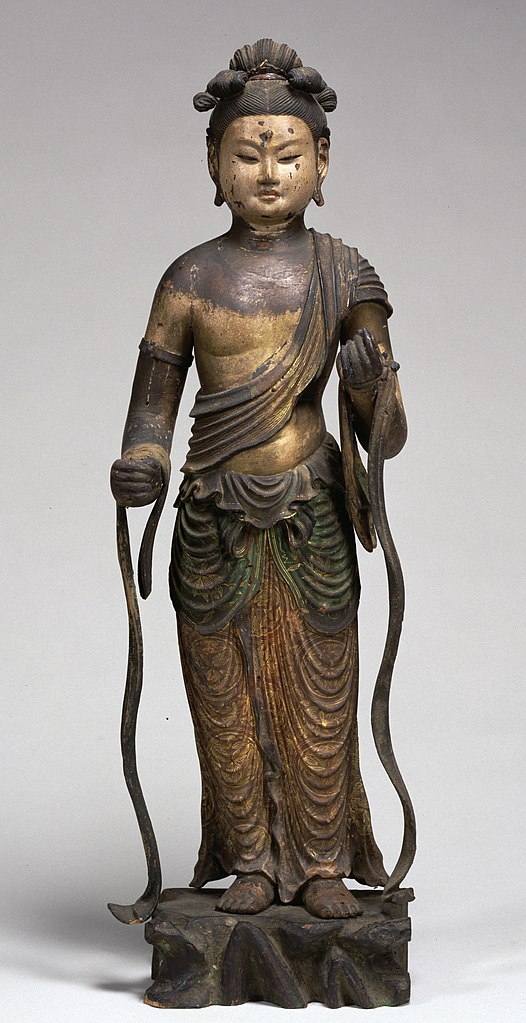
国立博物館所蔵品統合検索システム, CC BY 4.0, via Wikimedia Commons
He is the oldest and most important bodhisattva and associated with wisdom. His name means “Gentle Glory”. Another name of Mañjuśrī is Mañjughoṣa. Artistic works often depict Manjusri holding a flaming sword and riding a lion. With these he cuts down ignorance and helps to tame our minds. Tradition often associates him with bodhisattva Samantabhadra.
Verifying Bodhisattva’s Ability to Help
Those of us who need help appeal to these and other bodhisattvas. They help us deal with our sins and karma. We seek their merit to balance our sins.
But how do we know for sure that the bodhisattvas’ noble compassions are sufficient to really take the karma for all our sins? Can they really meet all our needs? The Lotus Sutra, written 500 years after Gautama Buddha, contains many parables and past prophecies of the bodhisattvas. But to really place confidence in the power of the Bodhisattvas to help us these prophecies should be verified.
Mao’s Long March as an Example
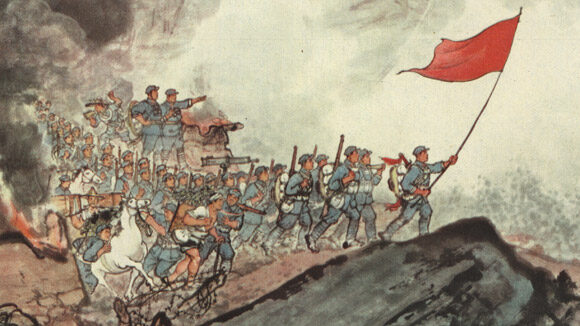
Consider this example to illustrate what I mean. Suppose today I write a prediction that Chairman Mao will succeed in the Long March and will eventually rule China. Will you accept that as a prophecy? The Long March occurred in 1934-35 and Chairman Mao gained power in China in 1949. These are historical events. Any normal person can study history to learn what happened in the past. Instead, what would be remarkable would be to read a document that we know was written in 1834 which predicted the Long March. Those who wrote that would have super-human insight, since humans do not know what will happen in the far future. With that kind of demonstrated ability we might place our trust that the author can also help our karma.
Similarly, the Mahayan Sutras appeared 500 years after Gautama Buddha. Because of their late date, their predictions may only appear to be prophetic. The possibility exists that they were written after the fact and only appear prophetic. That would make them like my ‘prophecy’ of the Long March written after the fact. We have no way of knowing for sure that they truly have the power to foresee the future. In that case how can we know for certain that the Bodhisattvas these Sutras describe can help with our Karma?
Verifiable Bodhisattva-like Prophecies
But a set of prophecies exists of one to come and help us with our needs and sins. We can historically verify that these prophecies were written long before the events they predict. The Dead Sea Scrolls contain these prophecies and scholars date the Dead Sea Scrolls at 100 BCE. The prophecies make detailed predictions about the crucifixion and resurrection of Jesus, which occurred in 33 CE. So we know the prophecies were in writing before the event they claim to predict. These prophecies also claim that this death and resurrection was a sacrifice to help us. As Bodhisattvas help us in our need, this Coming Person would serve us by helping us. Here we explore these prophecies, both to verify them and also to understand how they can help us in our need.
Isaiah’s Prophecy of the Coming Servant
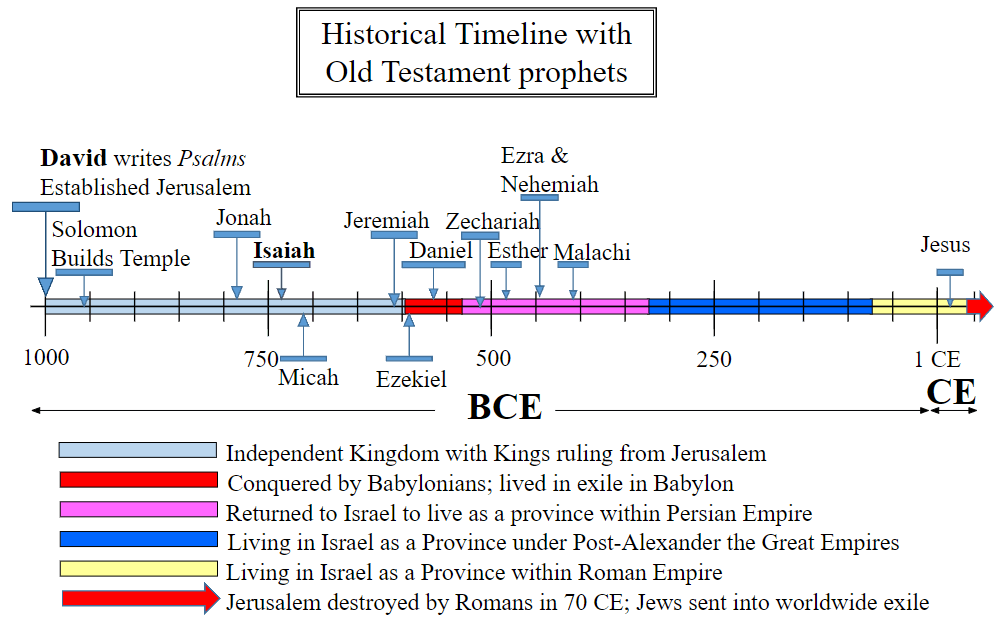
The Hebrew prophet Isaiah wrote this prophecy about 750 BCE to predict a coming Servant. He would serve us by suffering for us. His sufferings would be for our benefit. We review the complete prophecy with some explanations inserted. Observe that it speaks of a ‘He’ and ‘him’ so it prophesies a coming man.
13 See, my servant will act wisely;
Isaiah 52:13-15
he will be raised and lifted up and highly exalted.
14 Just as there were many who were appalled at him—
his appearance was so disfigured beyond that of any human being
and his form marred beyond human likeness—
15 so he will sprinkle many nations,
and kings will shut their mouths because of him.
For what they were not told, they will see,
and what they have not heard, they will understand.
This Coming Servant will ‘sprinkle many nations’. This means he will make clean or give merit to peoples in many nations, not just his own. Thus his service will be to help those who want his help.
The Despised One
1 Who has believed our message
Isaiah 53:1-3
and to whom has the arm of the Lord been revealed?
2 He grew up before him like a tender shoot,
and like a root out of dry ground.
He had no beauty or majesty to attract us to him,
nothing in his appearance that we should desire him.
3 He was despised and rejected by mankind,
a man of suffering, and familiar with pain.
Like one from whom people hide their faces
he was despised, and we held him in low esteem.
Though like a shoot (i.e. Branch) before the Creator God, people would ‘despise’ and ‘reject’ this Man. He would fully experience ‘suffering’ and ‘held in low esteem’ by others.
4 Surely he took up our pain
Isaiah 53:4-5
and bore our suffering,
yet we considered him punished by God,
stricken by him, and afflicted.
5 But he was pierced for our transgressions,
he was crushed for our iniquities;
the punishment that brought us peace was on him,
and by his wounds we are healed.
We sometimes judge the misfortune of others, or look at those in a low position, as a consequence, or karma, of their sins. Similarly, this Man’s afflictions will be so great that we assume God is punishing him. But he will not be punished for his own sins – but for ours. Like the Bodhisattvas, he will bear an awful burden for our healing and peace.
This was fulfilled in the crucifixion of Jesus of Nazareth, who was ‘pierced’ on a cross, stricken, and afflicted. But keep in mind that Isaiah wrote this prophecy 750 years before Jesus lived.
Punished… For Us
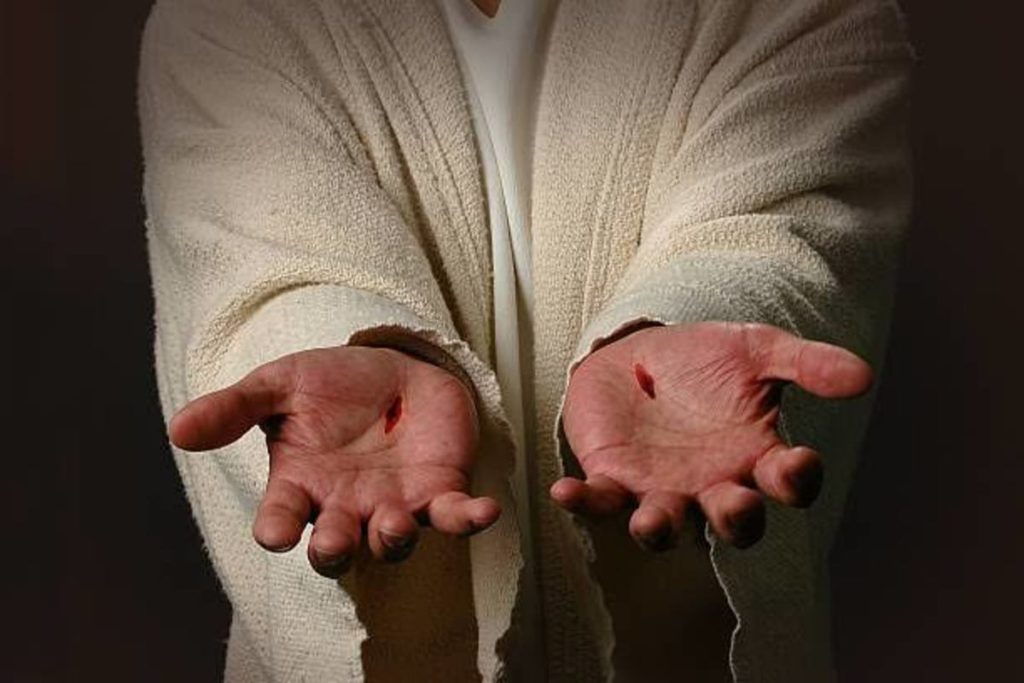
6 We all, like sheep, have gone astray,
each of us has turned to our own way;
and the Lord has laid on him
the iniquity of us all.7 He was oppressed and afflicted,
Isaiah 53:6-7
yet he did not open his mouth;
he was led like a lamb to the slaughter,
and as a sheep before its shearers is silent,
so he did not open his mouth.
Our sin and going astray from dharma and Five Precepts required that this man carry our iniquities or sins. He willingly and peacefully went to the slaughter in our place, not protesting or even ‘opening his mouth’. Jesus fulfilled this precisely when he went willingly to the cross.
To His Death
8 By oppression and judgment he was taken away.
Isaiah 53:8
Yet who of his generation protested?
For he was cut off from the land of the living;
for the transgression of my people he was punished.
The prophecy stated that he would be ‘cut off from the land of the living’. When Jesus died on the cross he fulfilled that.
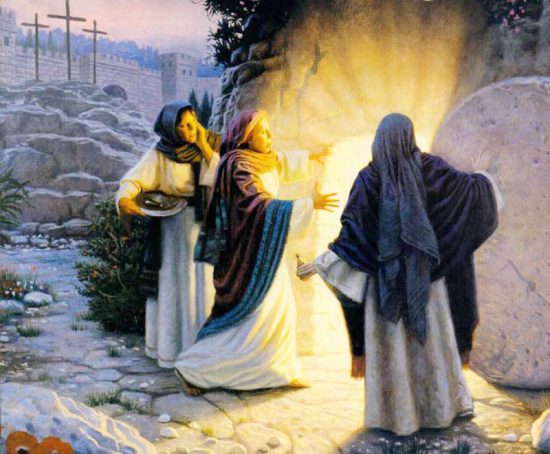
9 He was assigned a grave with the wicked,
Isaiah 53:9
and with the rich in his death,
though he had done no violence,
nor was any deceit in his mouth.
Jesus died condemned as a ‘wicked’ man even though ‘he had done no violence’ and no ‘deceit was in his mouth’. Yet, he was buried in the tomb of Joseph of Arimathea, a rich Priest. Jesus fulfilled both being ‘assigned a grave with the wicked’ but also ‘with the rich in his death’.
10 Yet it was the Lord’s will to crush him and cause him to suffer,
Isaiah 53:10
and though the Lord makes his life an offering for sin,
he will see his offspring and prolong his days,
and the will of the Lord will prosper in his hand.
This cruel death was not some terrible accident or misfortune. It was ‘the Lord’s will’.
Why?
Because the ‘life’ of this man would be an ‘offering for sin’.
Whose sin?
Those of us among the ‘many nations’ that have ‘gone astray’. When Jesus died on the cross he created merit that he can give us. Like the great Bodhisattvas, he helps us by paying for sin regardless of nationality, age, gender, religion, or social position. But also like the Bodhisattvas, he does so if we ask for help. He will not force his help upon us.
But Ends Triumphant
11 After he has suffered,
Isaiah 53:11
he will see the light of life and be satisfied;
by his knowledge my righteous servant will justify many,
and he will bear their iniquities.
The prophecy’s tone now changes and becomes triumphant. After his terrible suffering described above, this Servant will see ‘the light of life’.
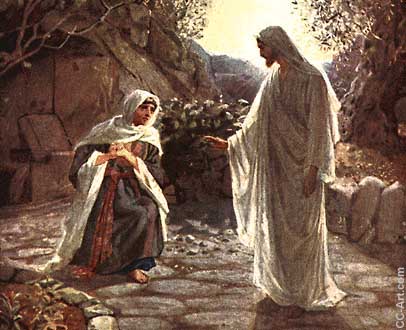
He will come back to life! And in so doing this Servant will ‘justify’ many.
To ‘justify’ is the same as getting ‘righteousness’. God credited or gave Abraham ‘righteousness’. God gave it to him simply because of his trust, or faith. Similarly, this Servant, whom many would despise, will justify, or credit righteousness, to ‘many’. This is exactly what Jesus accomplished by rising from the dead after his crucifixion. The resurrection demonstrates that his merit suffices to justify us.
12 Therefore I will give him a portion among the great,
Isaiah 53:12
and he will divide the spoils with the strong,
because he poured out his life unto death,
and was numbered with the transgressors.
For he bore the sin of many,
and made intercession for the transgressors.
Though Isaiah prophesied this 750 years before Jesus lived, Jesus fulfilled even specific details to show this was God’s plan. It also demonstrates that Jesus can help anyone, even those held in the lowest esteem. Like a bodhisattva, Jesus serves those who need and ask for help to gain merit. His suffering, death, and resurrection, demonstrates both his willingness and power to help those who call to him.
Digging Deeper
Is it not worthwhile to fully consider and understand this servant? Here are some ways to do so.
- Explore the Story of this Servant through the lens of the Zodiac.
- Investigate another prophecy also detailing events of Jesus’ crucifixion.
- How Abraham foresaw the crucifixion by pointing to the location.
- How Moses foresaw the crucifixion by pointing to its Full Moon Festival.
- How Daniel foresaw the date of the crucifixion.
- How Zechariah foresaw the name of the Servant.
- Explore Jesus as revealed in the Gospels.